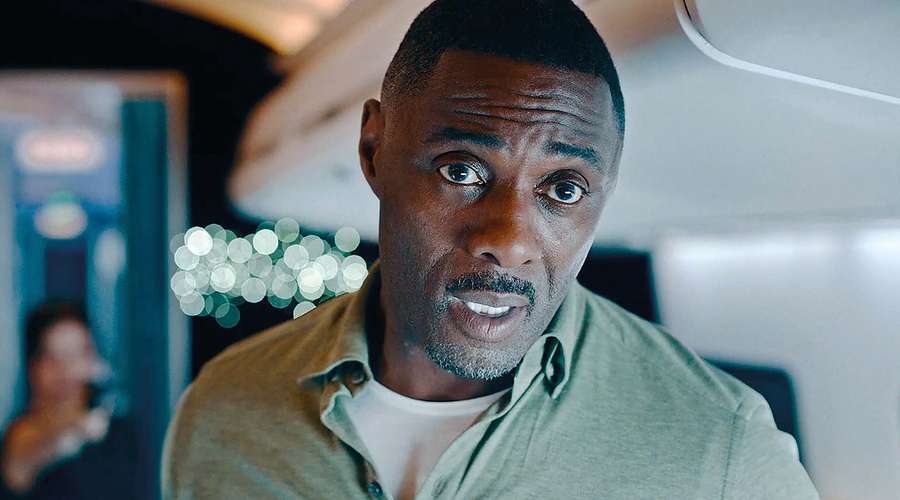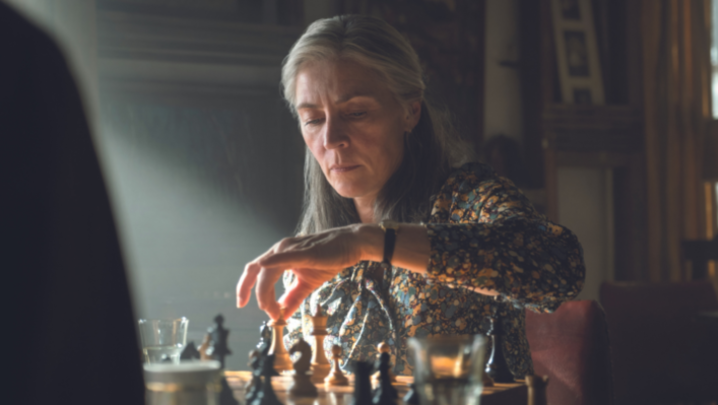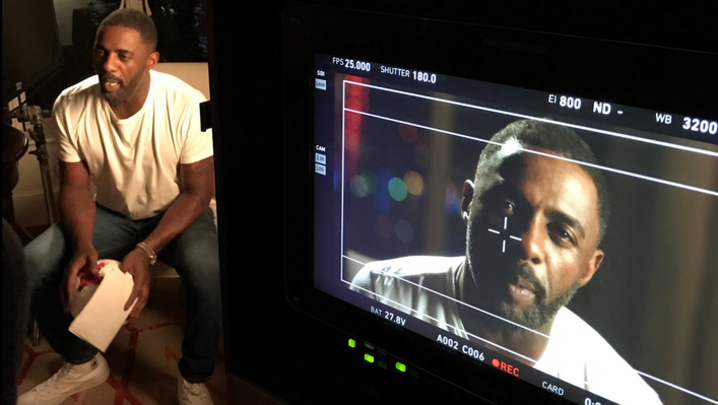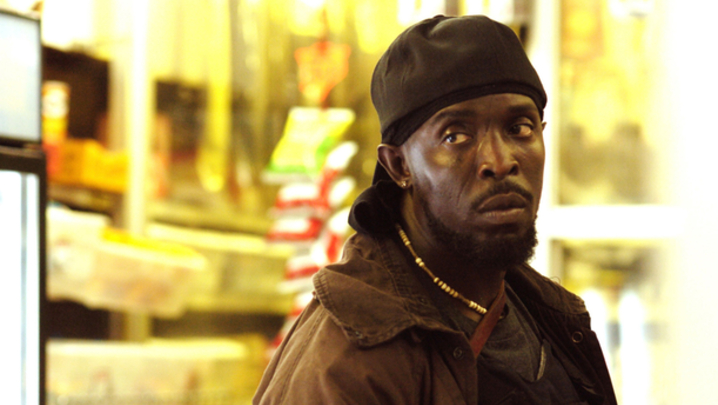Thanks to shows such as Slow Horses and Hijack, the tech giant’s streaming service is gaining traction in a crowded market. Tara Conlan reports
Two statistics released in recent months have made people sit up and pay attention to the burgeoning progress made by the streaming service Apple TV+. In May, the Jason Sudeikis-fronted football comedy drama, Ted Lasso, became the first Apple show to feature in Barb’s SVoD average UK monthly audience top 20.
It came in at number 18, with around 963,000 viewers – well below the most-watched (Netflix’s Queen Charlotte: A Bridgerton Story, seen by around 3 million) but a milestone nonetheless.
Then, in June, Barb released figures revealing that, although the number of British households with access to streaming services declined in the first quarter of this year – from 19.6 million to 19.1 million – two streaming services actually grew: Now TV (up 8% to 2.0 million) and Apple TV+ (up 13% to 1.9 million).
Of course, it is important to note that Apple TV+ is well behind Netflix (which has almost 17 million UK subscribers), Amazon Prime Video (12.9 million) and Disney+ (7.1 million). As Barb Chief Executive Justin Sampson said: “Apple is coming from a much lower base”, but the service only launched in November 2019 and “it is clear that it is becoming more successful”.
The platform’s trajectory – despite the decline in streaming subs due to the cost-of-living crisis – has left many asking: what is the secret of its success and what is it planning next?
A key objective of Apple TV+ appears to be quality rather than quantity. Since launching, Apple’s heads of worldwide video, Zack Van Amburg and Jamie Erlicht, have been selective about whom they hire and what they commission.
With its focus on originals and financed by Apple’s deep pockets – in June the tech behemoth became the world’s first company to achieve a market value of $3tr – the streaming service has inevitably attracted high-profile talent and content. One of its first shows was Reese Witherspoon and Jennifer Aniston’s The Morning Show, which captured the #MeToo zeitgeist and helped get the service off to a strong start.
Word of mouth and critical acclaim helped spread the word, along with trial subscriptions given away with Apple products.
Hits grew UK subs, particularly the stylish spy drama Slow Horses, starring Gary Oldman, and the previously mentioned Ted Lasso, which resonated with UK audiences due to its Premier League setting and mostly British cast.
Many awards followed, including Oscars for The Boy, the Mole, the Fox and the Horse (a BBC co-production) and the feature film CODA, and a Bafta for the Sharon Horgan-fronted comedy series Bad Sisters.
As one producer put it, what Apple TV+ has done with its commissioning policy is to “set the bar phenomenally high. It is not commissioning very much. But what it commissions does well.”
This approach is timely: viewers are overwhelmed with the avalanche of content available since the streaming boom. Rather than scrolling through reams of “maybes”, Apple TV+ viewers know they’ll get something more “selective” – perfect for the time-poor viewer.
Enders Analysis Head of Television Tom Harrington says it is important to “look at why” Apple TV+ exists. He explains that, for years, Apple was hugely successful selling phones and laptops, but with the market saturated growth had slowed.
That user base has given Apple access to some of the richest people in the world, says Harrington, so “what it has done is sort of pivoted. It is still mainly a hardware business but that’s been skewed… a bit more towards services, accessories and up-selling.”
“It becomes part of this mega subscription with a cloud sub, music, games, things like that. [Plus] it’s creating a trading platform. Apple TV+ is a valuable part of that ecosystem to bring people in.”
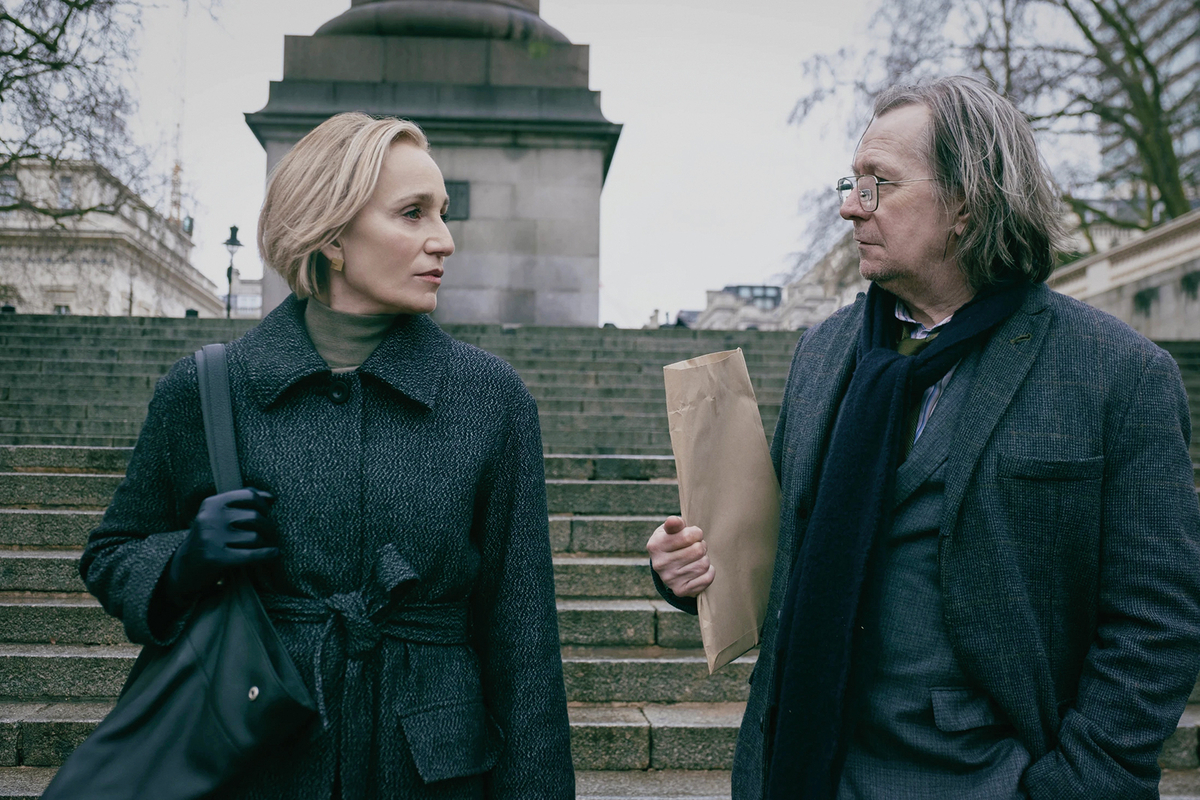
Estimates put Apple TV+’s content budget at around $8bn, just under half that of Amazon and Netflix. So with subscriptions increasing will it commission more shows? Producers say Apple wants high-quality shows that do not adversely affect the brand: smart TV for people with smart TVs.
Apple is not rash with its cash, but it is looking to continue to expand. It recently added to its European team – there are offices in Paris, Munich and London – by announcing the hire of BBC documentaries and popular factual commissioner Max Gogarty.
He is expected to report to his ex-BBC colleague Alison Kirkham, whose team has been responsible for hits like Twofour’s Eugene Levy-fronted The Reluctant Traveller, who in turn reports to Europe creative director Jay Hunt.
Kirkham joined as commissioner for unscripted in 2020 – the same year Kim Varvell came on board as a drama commissioner working on shows that have included the Uma Thurman-led Suspicion and the highly praised Idris Elba vehicle Hijack.
Varvell announced in April that she was leaving to co-found indie Conker Pictures. The appointment of a new scripted commissioner will be announced soon.
Many in British TV are intrigued by Apple TV+, especially as it stays so quiet. Corporately, Apple executives tend not to shout much and Apple TV+ – unlike some in the entertainment industry – prefers to let the content do the talking.
So much so that there was surprise when Hunt made a rare appearance last year to interview Paramount UK Chief Content Officer Ben Frow for the RTS. Apple declined interviews for this piece and Hunt has not given an interview since joining Apple.
One producer said Hunt and Kirkham’s public service background made them ideal hires for Apple TV+: “Alison and Jay are whip-smart and have a huge breadth of knowledge.”
“People remember Jay oversaw the move of the Paralympics and Great British Bake Off to Channel 4, but don’t forget she was also editor of the 1:00pm and 6:00pm BBC News bulletins and ran BBC One and Channel 5. Alison has done everything from securing Prince Harry and Meghan Markle’s engagement interview, big shows such as Blue Planet II and worked on the Today programme.”
Hunt works within Van Amburg and Erlicht’s main Apple leadership team, which includes head of programming Matt Cherniss, head of features Matt Dentler, head of production Bruce Richmond, head of children’s programming Tara Sorensen and casting supremo Tamara Hunter.
The luxury of making fewer shows means commissioners can be more focused on what makes them distinctive and hopefully world class.
A producer who has worked with Apple TV+ said: “One of the secrets of its success is close collaboration [with indies] and being hand-in-hand during development, so we are aligned to deliver its brief.”
Apple Studios – the production arm – has some big talent coming up to win viewers, including the Martin Scorsese, Leonardo DiCaprio and Robert De Niro film Killers of the Flower Moon, and a highly anticipated and as-yet untitled Formula One feature starring Brad Pitt.
New TV shows include series 3 of The Morning Show, the John le Carré documentary The Pigeon Tunnel, and nature shows Born to Be Wild and Endangered Planet.
Some UK producers are concerned that, with the bar for Apple commissions set so high, they can spend too much time developing the right show and get disheartened because not that much is greenlit.
Despite the steady increase in the amount Apple TV+ is commissioning, it is unlikely there will be a sudden step change in the volume: those who have worked with the platform stress that quality is the overwhelming priority.
Apple TV+ does not talk publicly about its strategy but it very much resembles Aesop’s fable of the tortoise and the hare: slow and steady wins the race – and, through its carefully thought-out expansion, the service looks set to take an even bigger bite of the streaming subscriptions market.

